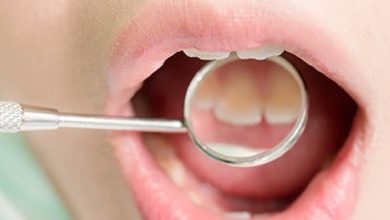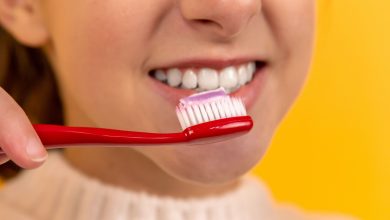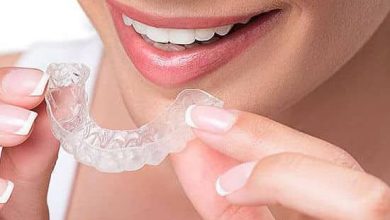Why Does Buprenorphine Cause Tooth Decay? Find Out Now!
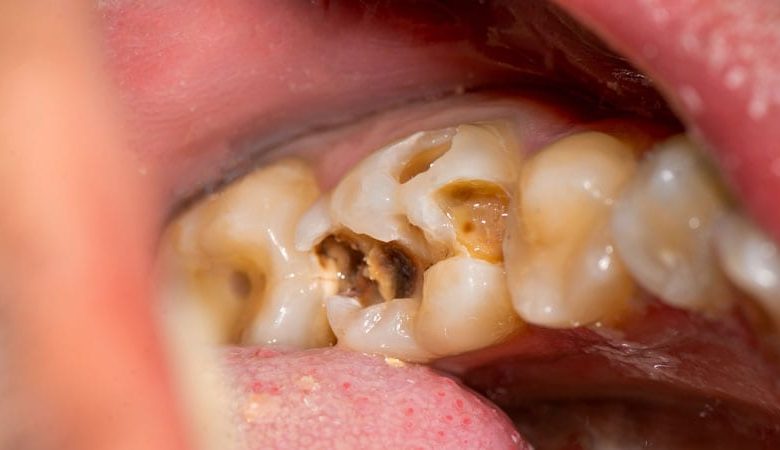
Buprenorphine can cause tooth decay by reducing saliva production, which is necessary for optimal oral health. The prolonged contact between tooth surfaces with buprenorphine may contribute to tooth damage and decay.
This risk has been identified by the Substance Abuse and Mental Health Services Administration (SAMHSA) and the Food and Drug Administration (FDA). Patients and healthcare providers should consider the potential dental problems associated with buprenorphine when making decisions about its use.
Dental issues related to buprenorphine can include cavities, oral infections, tooth loss, and tooth fractures. It is essential to address and manage these risks to maintain dental health while using buprenorphine.
Reduced Saliva Production And Oral Health
Buprenorphine and other opioid agonist medications have been found to reduce saliva production, which is important for optimal oral health. This reduction in saliva can lead to a higher risk of tooth decay and other dental problems.
The FDA has issued warnings about the dental problems associated with buprenorphine medications that are dissolved in the mouth. The prolonged contact between the teeth and the medication can contribute to the alteration of tooth surfaces and increase the risk of decay and damage.
Patients who use buprenorphine medications should be counseled about the potential risks to their oral health. They should be aware of the importance of regular dental care and the need to address any dental problems promptly.
Overall, it is crucial for patients and providers to consider the lifesaving benefits of buprenorphine while also being mindful of the potential dental risks. Taking preventive measures and seeking timely dental care can help mitigate the risk of tooth decay associated with buprenorphine use.
Fda Warning: Dental Problems With Buprenorphine Medicines
Why Does Buprenorphine Cause Tooth Decay: Buprenorphine and other opioid agonist medications can reduce the saliva production that is important for optimal oral health. The FDA warns about dental problems with buprenorphine medicines dissolved in the mouth to treat opioid use disorder and pain. There have been reports of severe and extensive tooth decay, tooth loss, and tooth fracture associated with the use of these medicines. The prolonged contact between tooth surfaces with buprenorphine/naloxone may contribute to the alteration of tooth enamel and increase the risk of dental damage. The reduction in saliva production caused by opioids can also lead to dry mouth (xerostomia), which is a risk factor for tooth decay and gum disease (periodontal disease).
It is essential for patients and healthcare providers to carefully weigh the potential lifesaving benefits of buprenorphine with the identified risk of dental problems when making decisions about starting and continuing its use.
Sublingual Buprenorphine And Dental Problems: A Case Series
In recent years, concerns have been raised about the dental problems associated with sublingual buprenorphine use. Buprenorphine, an opioid agonist medication, has been found to reduce saliva production, which is crucial for maintaining optimal oral health. This reduction in saliva production can contribute to tooth decay and other dental issues.
The Food and Drug Administration (FDA) has issued a warning about the dental problems associated with buprenorphine medicines that are dissolved in the mouth. Reports have indicated that prolonged contact between the tooth surfaces and buprenorphine/naloxone can result in tooth alteration and decay. Studies have also suggested that the acidic nature of suboxone can change acidity levels in the mouth, leading to tooth decay and other oral health problems.
Patients should be aware of the risks associated with dental health when using buprenorphine medications. It is important to discuss these risks with a healthcare provider and weigh the potential benefits of buprenorphine treatment against the identified dental risks. Regular dental check-ups and maintaining good oral hygiene practices can also help prevent and address dental issues associated with sublingual buprenorphine use.
Overall, understanding the potential dental problems caused by buprenorphine medications can help patients and healthcare providers make informed decisions about treatment options and take necessary precautions to maintain good oral health.
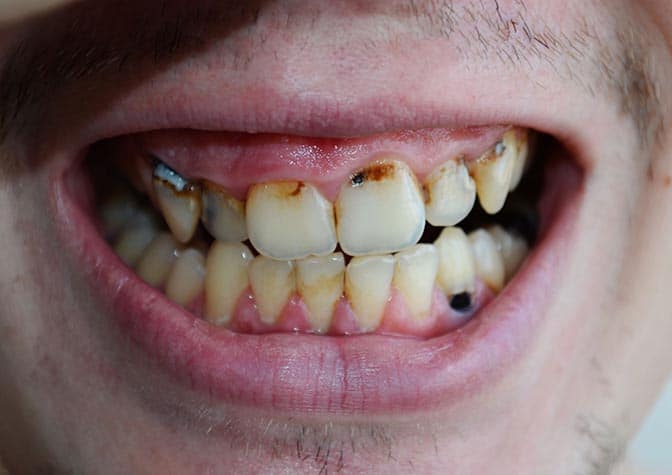
Credit: summerhousedetoxcenter.com
Can Suboxone Cause Tooth Decay? Prevention Methods
Buprenorphine, a medication used for opioid use disorder and pain management, can cause tooth decay due to reduced saliva production. Patients and providers should consider the benefits of buprenorphine while being aware of this potential risk. It is important to address dental problems associated with buprenorphine dissolved in the mouth to prevent tooth decay and maintain oral health.
<>Why Does Buprenorphine Cause Tooth Decay<> Can Suboxone Cause Tooth Decay? Prevention Methods Subheading: Link between dissolving Suboxone and changes in mouth acidity levels Impact on dental health and prevention strategies Buprenorphine and other opioid agonist medications have been found to reduce saliva production, which is essential for maintaining optimal oral health. The Substance Abuse and Mental Health Services Administration (SAMHSA) acknowledges this risk and emphasizes the need to balance the life-saving benefits of buprenorphine with the potential for tooth decay. The FDA has issued a warning regarding dental problems associated with buprenorphine medicines dissolved in the mouth. Prolonged contact between tooth surfaces and buprenorphine/naloxone could contribute to tooth damage and decay. Some individuals may experience changes in mouth acidity levels due to dissolving Suboxone, leading to oral health issues such as cavities, tooth decay, and even tooth loss. It is crucial to address this risk and provide preventive measures, including regular dental check-ups, good oral hygiene practices, and increasing saliva production through various methods. Educating patients about the potential dental risks associated with buprenorphine medications is crucial for promoting long-term oral health while benefiting from the medication’s therapeutic effects.Oral Health Issues Associated With Suboxone Use
| Why Does Buprenorphine Cause Tooth Decay |
| Oral Health Issues Associated with Suboxone Use |
| Suboxone teeth problems including oral infections, tooth decay, cavities, and tooth loss |
Suboxone use has been associated with various oral health issues such as oral infections, tooth decay, cavities, and tooth loss. One of the main reasons for these problems is the reduced saliva production caused by buprenorphine and other opioid agonist medications. The reduced saliva flow can result in an imbalance in the oral environment, making it more susceptible to dental issues. The FDA has issued warnings regarding the dental problems reported with medicines containing buprenorphine that are dissolved in the mouth. Prolonged contact between the teeth surfaces and buprenorphine/naloxone can contribute to the alteration of tooth structure. This prolonged acidic exposure can lead to tooth damage and decay. It is crucial for patients and healthcare providers to weigh the benefits of buprenorphine against the identified risks and take necessary measures to address oral health concerns.
Risks Of Dental Problems From Buprenorphine
Buprenorphine and other opioid agonist medications can reduce the saliva production that is important for optimal oral health. The FDA has issued a warning about dental problems associated with medicines containing buprenorphine that are dissolved in the mouth. This includes tooth decay, cavities, and tooth loss. Sublingual administration of buprenorphine has been found to increase the risk of dental problems due to prolonged exposure of the drug to the teeth. Dry mouth, also known as xerostomia, is a common side effect of opiates and is a risk factor for tooth decay and gum disease. The acidic nature of buprenorphine when dissolved in the mouth can also contribute to tooth damage.
Fda Warning: Buprenorphine Medications Increase Dental Problems
Buprenorphine medications can increase dental problems due to reduced saliva production, which is crucial for oral health. The FDA is warning patients and providers to consider this risk when deciding to use buprenorphine for opioid use disorder and pain management.
| Why Does Buprenorphine Cause Tooth Decay |
| FDA Warning: Buprenorphine Medications Increase Dental Problems |
|
Subheading: Direct exposure of teeth to buprenorphine Subheading: Susceptibility to decay and damage |
| Buprenorphine and other opioid agonist medications can reduce the saliva production that is important for optimal oral health. “SAMHSA urges patients and providers to weigh the lifesaving benefits of buprenorphine with this identified risk in making decisions about starting and ongoing use of buprenorphine.” Dental problems have been reported with medicines containing buprenorphine that are dissolved in the mouth. The prolonged contact between tooth surfaces with buprenorphine may be a contributing factor in the alteration of tooth surfaces. Some people develop tooth decay and dental health issues because dissolving buprenorphine changes acidity levels inside their mouth. These Suboxone teeth problems include oral infections, cavities, and tooth loss. Additionally, opiates reduce saliva production and cause xerostomia (dry mouth), a risk factor for tooth decay and gum disease. It is important to counsel patients that severe tooth decay, tooth loss, and tooth fracture have been reported with the use of buprenorphine. Overall, the direct exposure of teeth to buprenorphine makes them susceptible to decay and damage, emphasizing the need to address this newly identified risk. |
Severe Dental Problems Reported With Buprenorphine Use
Why Does Buprenorphine Cause Tooth DecayBuprenorphine and other opioid agonist medications can reduce the saliva production that is important for optimal oral health. The SAMHSA urges patients and providers to weigh the lifesaving benefits of buprenorphine with this identified risk in making decisions about starting and ongoing use of buprenorphine. “FDA warns about dental problems with buprenorphine medicines dissolved in the mouth to treat opioid use disorder and pain”. Dental problems have been reported with medicines containing buprenorphine that are dissolved in the mouth. The prolonged contact between tooth surfaces with buprenorphine/naloxone may be a contributing factor in the alteration of tooth Does Suboxone Rot Your Teeth? Can You Prevent Tooth Decay? These Suboxone teeth problems include oral infections, tooth decay, cavities, and tooth loss. Opiates reduce saliva production and cause xerostomia (dry mouth), a risk factor for tooth decay and gum disease. The direct exposure of teeth to buprenorphine makes the teeth susceptible to decay and damage. Counsel patients that severe and extensive tooth decay, tooth loss, and tooth fracture have been reported with the use of this medicine and it is important to address this newly identified risk associated with buprenorphine use.
Frequently Asked Questions For Why Does Buprenorphine Cause Tooth Decay
What Does Buprenorphine Do To Your Teeth?
Buprenorphine can cause tooth decay due to reduced saliva production, as stated by the Substance Abuse and Mental Health Services Administration (SAMHSA) and the FDA. Dissolving buprenorphine medicines in the mouth can alter acidity levels, leading to dental problems like decay, cavities, and tooth loss.
Severe tooth decay, tooth loss, and tooth fractures have been reported with the use of buprenorphine. This risk should be considered when deciding to use buprenorphine.
Why Does Suboxone Rot Teeth?
Buprenorphine and other opioids reduce saliva production, leading to tooth decay. Prolonged exposure of teeth to buprenorphine can damage tooth surfaces. Dissolving Suboxone in the mouth changes acidity levels, causing dental issues like cavities and tooth loss. It is important to balance the benefits of buprenorphine with the risk to oral health.
FDA warns about dental problems with buprenorphine medicines dissolved in the mouth. Severe tooth decay, tooth loss, and fractures have been reported with the use of buprenorphine.
Why Does Subutex Cause Tooth Decay?
Subutex, a form of buprenorphine, can cause tooth decay by reducing saliva production and altering acidity levels in the mouth. This can lead to oral infections, cavities, and tooth loss. Patients and healthcare providers should consider the benefits and risks before starting or continuing to use Subutex.
Can I Sue Suboxone For Ruining My Teeth?
Suboxone may cause tooth decay due to reduced saliva production, leading to dental health issues. While FDA warns about dental problems with buprenorphine medicines dissolved in the mouth, it is important to weigh the benefits and risks when considering the use of Suboxone.
Severe tooth decay, loss, and fracture have been reported, and individuals may consider seeking compensation for any damages incurred.
Conclusion
In light of the recent FDA warning and reports on dental problems associated with buprenorphine medications, it is crucial to understand the impact of this drug on oral health. The reduction in saliva production caused by these medications can contribute to tooth decay and other dental issues.
It is important for patients and healthcare providers to carefully consider the benefits and risks when making decisions about the use of buprenorphine. By being aware of these risks and taking appropriate preventive measures, individuals can minimize the potential impact on dental health.



